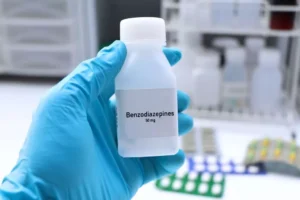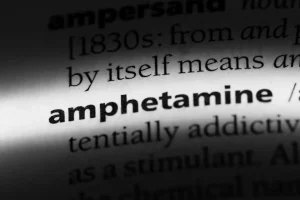
There are particular recommended vitamins for a recovering alcoholic. A lack of vitamin B9 can trigger anemia and make you weak, tired, and moody. Folic acid is in foods like enriched bread, flour, cornmeal, pasta, rice, and breakfast cereals.

Types of Collagen
Magnesium helps regulate stress and anxiety levels, promotes sleep quality, and supports overall well-being. Zinc plays a role in neurotransmitter function and immune system health. Including magnesium-rich foods like leafy greens, nuts, and seeds, as well as zinc-rich foods like seafood, beans, and fortified cereals, can be beneficial.
What Essential Vitamins Do Drinkers Need?

WKS often results due to inadequate absorption of thiamine from the digestive system, a common consequence of excessive alcohol consumption. Common symptoms of WKS include memory loss, confusion, and coordination problems. It is critical to address thiamine deficiency as early as possible to prevent or alleviate the symptoms of WKS. It is important to adhere to the recommended dosage of B vitamins and avoid excessive supplementation. Taking excessive amounts of certain vitamins, such as vitamin B6, can have adverse effects.
How can supplements help address these nutritional deficiencies?
- Milk thistle is a natural supplement that contains silymarin, a powerful antioxidant known for its liver-protecting properties.
- Although there are some studies that say that niacin may treat alcohol withdrawal there is no conclusive proof that high doses of niacin are helpful.
- Vitamin C can ease withdrawal by increasing the alcohol clearance rate9.
- Collagen doesn’t work alone—it relies on other nutrients, like vitamin C, copper and zinc, to support its production and maximize its benefits.
- The timing of your collagen supplement can make a difference in how well it supports your health goals.
Additionally, people recovering from alcoholism may experience decreased appetite or gastrointestinal issues. These best vitamins for recovering alcoholics can make it difficult to get all the nutrients they need from food alone. Drinking alcohol can inhibit fat absorption, this affects the absorption of fat soluble vitamins. Alcohol intake can also affect vital organs which can lead to imbalances in the body.
- In addition to vitamin supplementation, incorporating mineral and antioxidant supplements can play a vital role in supporting recovery and overall health in individuals struggling with alcoholism.
- By aiding in the repair and regeneration of the intestinal lining, glutamine can improve nutrient absorption and strengthen the body’s overall resilience.
- While all of it provided some relief and I learned a lot, I still struggled with insomnia, depression, and the underlying low-grade feeling I’m not ok.
- Vitamin E is essential for antioxidant protection, which helps the body neutralize harmful free radicals produced during alcohol metabolism.
How can supplements be integrated into a larger recovery plan?
Some studies show that kudzu is helpful in reducing alcohol cravings. Vitamin C is not only good for fighting off colds, it is excellent for boosting the immune system. It restores the imbalance in the immune system that chronic alcoholism creates.
- Studies show that glycine is useful in treating both alcoholic hepatitis and carcinoma caused by alcoholic cirrhosis.
- By taking choline supplements you can reverse much of the damage that alcohol does to your kidneys and urinary tract.
- I’m a certified nutrition counselor, science-based health coach, and addiction survivor.
What Deficiency Causes Addiction?
Vitamin A aids the immune system in fighting off infections, helps you see better in the dark and is needed for healthy skin. Most people can get enough vitamin A from eating dairy, oily fish and liver. Yellow and red vegetables such as carrots and peppers, contain beta-carotene, which breaks down into vitamin A in the body.

Chronic alcohol use causes the body to excrete too much magnesium and other electrolytes through urination, often resulting in a magnesium deficiency. Chronically low levels of magnesium can cause nausea, heart palpitations, stiffness, muscle spasms, general body weakness, and increase the risks of high blood pressure and type-2 diabetes. Glutamine is a naturally occurring essential amino acid which is underproduced in conditions of extreme stress or in ongoing heavy alcohol use. Long term drinkers with nutritional issues usually suffer from more deficiencies than vitamin B alone. People with alcohol use disorder are particularly susceptible to deficiency of B vitamins.
Vitamin C is a powerful immune system booster that assists the body in combating infections and illnesses. Alcoholics may have weakened immune systems, so increasing your intake of vitamin C can give your body the support it needs to fight off potential threats. Vitamin C also plays a role in the creation of collagen, promoting healthier skin and faster wound healing. We reached out to nutritionist and health advocate Meaghan Greenwood to ask some questions about Oxford House supplements for recovering alcoholics.

Best Supplements For Alcohol Recovery
B vitamins, including B2, B3, B5, B6, B12, and folic acid, play a crucial role in energy production, nervous system function, and brain health. Taking a vitamin B complex supplement can ensure that you’re getting all the necessary B vitamins to support your recovery. Individuals who are in recovery from alcohol abuse can greatly benefit from a healthy diet coupled with a robust vitamin regimen. Replenishing vitamins and nutrients in a body depleted by alcoholism can help boost energy levels and diminish unpleasant withdrawal symptoms, helping greatly with the recovery process.
Consider incorporating mindfulness practices, such as meditation or deep breathing, into your daily routine. Journaling and creative expression can also help process emotions and reduce stress. Sleep disturbances are common during alcohol withdrawal, and fatigue can exacerbate symptoms. Establishing a consistent sleep schedule and creating a relaxing bedtime routine can help improve sleep quality.


